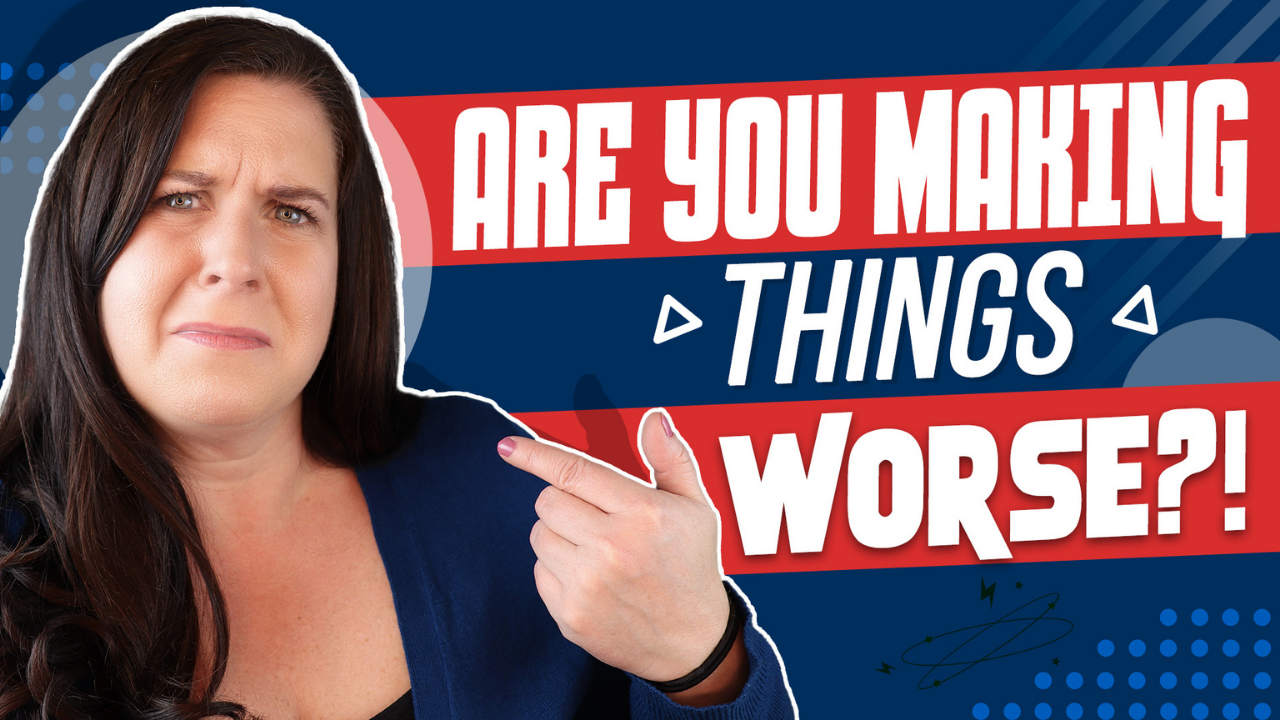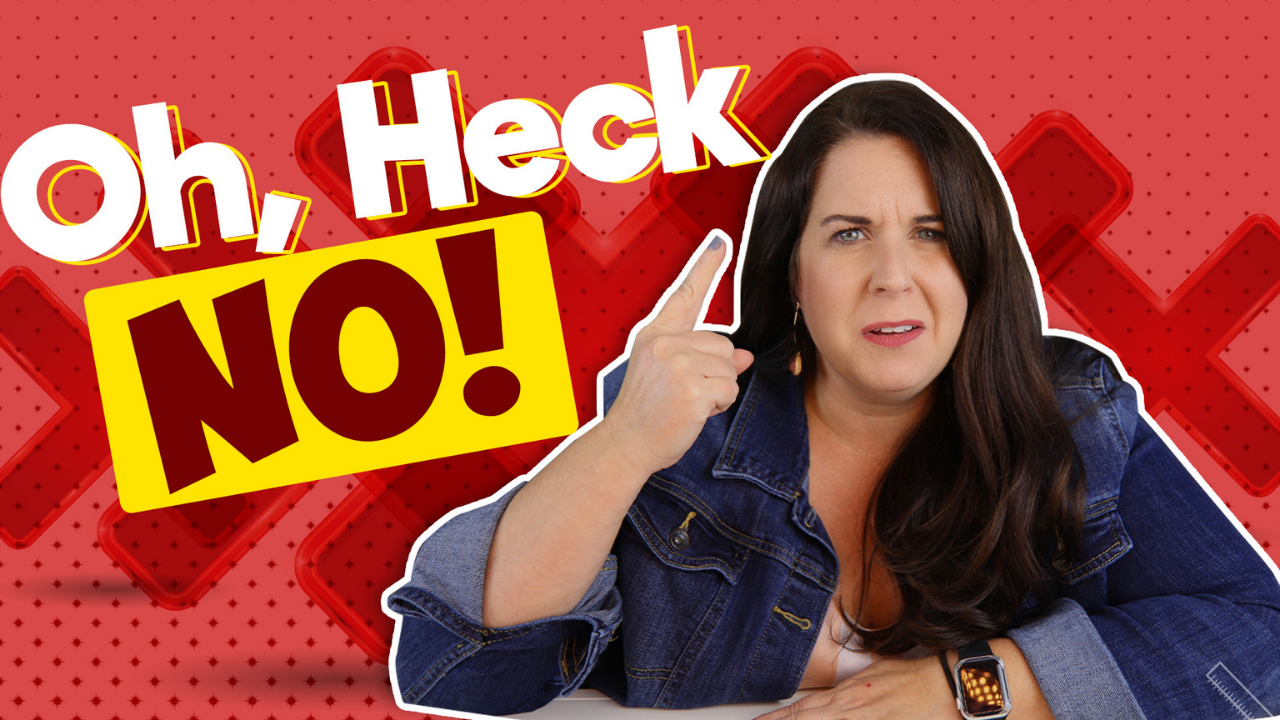5 Ways You Could Be Enabling Someone Else's Addiction!
You've probably heard of the three C's if you have a loved one struggling with addiction and are involved in family recovery. The three C's come from Al-Anon.
The three C's are:
You didn't CAUSE it.
You can't CONTROL it.
You can't CURE it.
To make it clear, you didn't cause the addiction. You can't control the addiction. You can't cure the addiction.
I want to add a fourth C, saying that you can CONTRIBUTE to the problem.
You might be contributing to your loved one's addiction in five ways.
I want you to understand that I'm not telling you that the addiction is your fault. The five behaviors that I'm about to explain trigger addiction.
It's easy for us to think about and see how addiction is the puppet master controlling all of our loved one's behaviors. I know you are behaving this way and doing these things because the addiction triggers you to react this way. However, like with an addiction, it is your responsibility to improve.
Sometimes we fail to see that addiction is not only controlling their behaviors like a puppet master but also controlling our behaviors. All of these things help keep an addiction alive. Now the good news is if you can stop the addiction from controlling your behaviors, you're 50% there.
#1 way you could be contributing to someone else's addiction problem
You're likely constantly looking for the evidence, trying to prove what you know is true. In most situations, you know it's not good; they're drinking, using, sneaking around, and lying but telling you they're not.
It's easy to allow ourselves to get wrapped up in this mission. The more we try to prove it, the more we fuel the addiction, the more we try to find it, the more we try to hide it.
#2 way you could be contributing to someone else's addiction problem
The second behavior that we get caught up in, which contributes to the problem, is that we are constantly trying to force them to see the problem. You have this odd sensation where you want to take someone by the shoulders and shake some truth into them. It is maddening to deal with someone in denial.
It's like, how can you not see this? It is so clear to everyone around you. Why are you doing this? When we feel that way, it's natural to want to rip the shade off of someone's denial. The more we force them to see it, the longer they stay in denial.
How to get someone out of denial
There are ways to get people out of denial, but forcing someone out of rejection is the least effective way. We teach these methods in our online course called The Invisible Intervention. We'll show you how to get someone to see that there's a problem, and you'll find out it is the opposite of what you've been doing.
Listen to this feedback I got last week from someone in our invisible intervention course, whose been using my method for roughly three weeks.
"My husband has had major drinking events in the past. I have responded with anger, which led to significant bad feelings between us. This time, I responded by using the invisible intervention methods with things like compassion and empathy.
I even thought about the situation differently instead of being angry and upset. I felt a little bit of relief, thinking to myself, maybe we're getting closer to him realizing he has a problem. The difference in my response was huge. He went right to bed but then called me in to apologize and say how much he loved me and how I didn't deserve to be treated like this.
The next morning he said he was done drinking. This is the first time it seems like his decision to quit drinking is his decision. He even took action by making some phone calls to deal with some medical issues that he's been neglecting. I'm trying very hard to keep my mouth shut. Instead, I'm doling out hugs, kisses, having fun conversations, and watching movies together, and he's not even fallen asleep. He's starting to initiate hugs and pleasant conversations. He seems happier. I think he's possibly feeling happiness toward himself instead of feeling shame and self-loathing. I now know to ask questions instead of sharing my thoughts and opinions. Which of course, came across to him as me being a know-it-all.
This is the best our relationship has been in a long time, and even though it's only been a week since he was drinking, I realize there may be more ups and downs, but I truly feel that there is hope, and I don't feel adrift and helpless like I did before. Thank you so much. I feel now that I have some direction."
As you can see from the feedback, not trying to force him to see it allows him to see it, which, guess what? If your behavior can contribute to addiction being worse, your behavior can contribute to things getting better.
#3 way our behavior contributes to their addiction
The number three way our behaviors can contribute is by trying to prove what we know is true. We are trying to get them to see that they have a problem, but we are also trying to get them to see how their behavior is negatively impacting them, us, and other people around them.
When we do this, we only hit their shame and guilt button, making them more defensive. In their head, they all think about how you're being unfair. "You're not me. You don't understand." they cling to the substance or the addiction even more because it's their only sense of relief.
#4 way you may be contributing to someone else's addiction
The fourth way some people contribute to a problem they don't even realize is by talking about it to others. The reason why we do this is that we're seeking help and support.
Sometimes we try to get other people to realize what's happening and step in and help the addicted person see the problem. Doing this will not only make your loved one not defensive but flat-out angry. Making the addicted person feel very angry, upset, shameful, and defensive, and there's no faster way to get some wanted to shut down than telling other people their business.
#5 way you may be contributing to someone else's addiction
I've saved the most obvious one for last. When our loved one is struggling with an addiction to drugs, alcohol, or any other behavioral addiction, we get trapped in a cycle of fear, which can cause us to enable them. Families can inadvertently contribute to someone else's addiction by constantly living in fear, which may trigger you to help the addiction. That could be paying ay for things you don't want to pay for, keeping someone from losing their job, or saving someone from failing out of school.
We're so scared that bad things will happen to our loved ones that we create a safety net trying to protect them, but often we're just covering the addiction and not so much the person.
Amber Hollingsworth
Take Amber's Free Boundaries Quiz 👉🏻https://www.familyrecoveryacademy.online/boundaries-quiz
Is someone breaking your boundaries? Watch these videos next:



